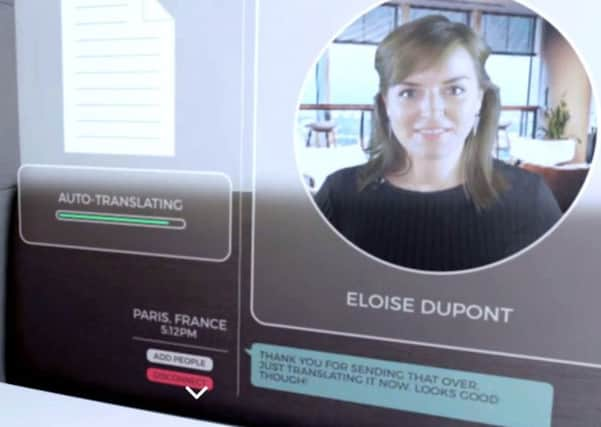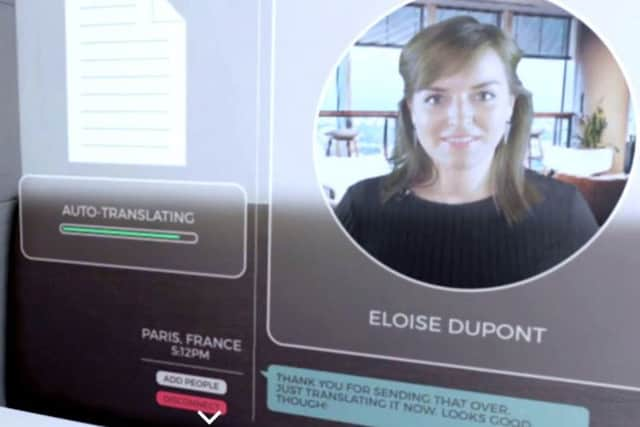'˜Prepare for digital disruption', warns JLL


They could tell you where the nearest available plug point is for your digital device, accurately auto-translate your meeting with someone speaking a different language and even give you a health score at the end of the day based on facts such as how much coffee you drank and how many steps you climbed.
This is what property agent JLL believes will be the norm for workers in 13 years. The technological revolution will drive a huge change in how and where we work by 2030, according to a new report.
Advertisement
Hide AdAdvertisement
Hide AdAdvances in computer power, the explosion in smartphones and faster and near ubiquitous connectivity is connecting more devices and more people to the Internet.


All of this is resulting in an explosion of data, which gives businesses unparalleled insight into their customers, powering machine learning and artificial intelligence.
JLL says this revolution will inevitably impact on workplace environments as workforce requirements change and property owners and occupiers must prepare their buildings, portfolios and strategies for the digital disruption that lies ahead.
The report, Workspace, Reworked, which explores the impact that technological innovation is having on workspace was shared with 120 guests at JLL’s annual Yorkshire Property Predictions seminar.
Advertisement
Hide AdAdvertisement
Hide AdJLL has also created a glimpse into how your working day could look in 2030 with an eye-opening new film.


Jon Neale, JLL’s head of UK research said: “In our report, we’ve identified the ways in which these changes are giving occupiers, developers and investors strong cues about how their approaches to their property will need to change practically in the future. New opportunities will emerge and those who are able to respond to change will reap the rewards.”
According to the research, as much as 30 per cent of a corporate portfolio will comprise flexible space by 2030 as businesses increasingly expect property to help them to attract and retain staff and enhance the productivity of their workforce.
Jeff Pearey, JLL’s lead director for Yorkshire, said: “People will be increasingly freed from their desks, process-driven tasks will become automated and we expect to see core workforces working with a pool of freelancers. There is no doubt that these changes will bring big challenges, both for workers and their employer.”
Advertisement
Hide AdAdvertisement
Hide AdSome developers and occupiers are already forging ahead with new working environments. The Centre for Digital Innovation in Hull is a pioneering new building for digital start-ups.
Meanwhile, in 2013, Leeds property agent CBRE began the national roll-out of a new office concept when it moved 70 staff to Toronto Square in the city.
The filing cabinets have gone, in favour of scanning and storing files digitally. A third of the company’s desks have also disappeared and staff are encouraged to sit in a different seat each day.
Each employee has a locker to store belongings and there are a number of “break-out” areas to encourage further interaction following a ban on eating at desks.
Managing director Richard Sunderland said: “It’s proven to be a success. People want a more collaborative environment.”